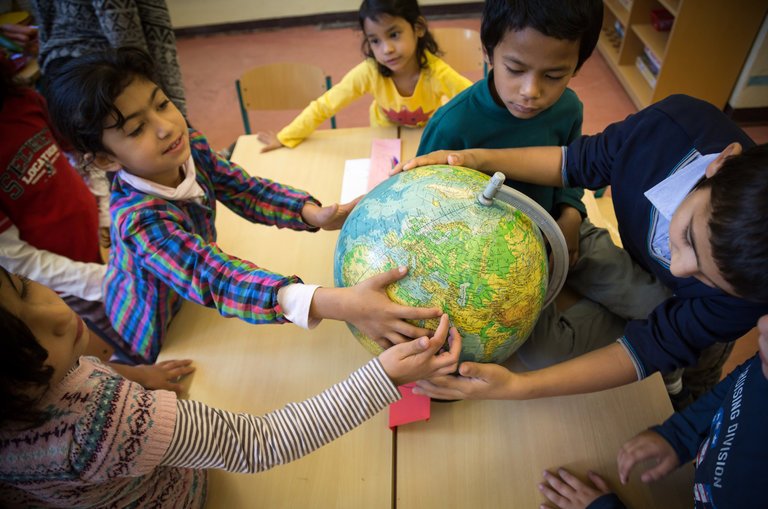
14 Jan Kristof: Why 2017 Was Best Year in Human History
Reading the title of one of his latest Sunday Op Ed piece for The New York Times, you might be tempted to call him a cockeyed optimist, but renowned journalist-author Nicholas Kristof is a just a truth-teller. Read his “Why 2017 Was the Best Year in Human History” here. The story is a balm for these angst-producing times and was repeated today, Sunday, on air, on Fareed Zakaria’s GPS.

Some young refugees who fled war in Syria now live in Germany. Credit Gordon Welters for The New York Times
We all know that the world is going to hell. Given the rising risk of nuclear war with North Korea, the paralysis in Congress, warfare in Yemen and Syria, atrocities in Myanmar and a president who may be going cuckoo, you might think 2017 was the worst year ever.
But you’d be wrong. In fact, 2017 was probably the very best year in the long history of humanity.
A smaller share of the world’s people were hungry, impoverished or illiterate than at any time before. A smaller proportion of children died than ever before. The proportion disfigured by leprosy, blinded by diseases like trachoma or suffering from other ailments also fell.
We need some perspective as we watch the circus in Washington, hands over our mouths in horror. We journalists focus on bad news — we cover planes that crash, not those that take off — but the backdrop of global progress may be the most important development in our lifetime.
Every day, the number of people around the world living in extreme poverty (less than about $2 a day) goes down by 217,000, according to calculations by Max Roser, an Oxford University economist who runs a website called Our World in Data. Every day, 325,000 more people gain access to electricity. And 300,000 more gain access to clean drinking water.
Readers often assume that because I cover war, poverty and human rights abuses, I must be gloomy, an Eeyore with a pen. But I’m actually upbeat, because I’ve witnessed transformational change.
As recently as the 1960s, a majority of humans had always been illiterate and lived in extreme poverty. Now fewer than 15 percent are illiterate, and fewer than 10 percent live in extreme poverty. In another 15 years, illiteracy and extreme poverty will be mostly gone. After thousands of generations, they are pretty much disappearing on our watch.
Just since 1990, the lives of more than 100 million children have been saved by vaccinations, diarrhea treatment, breast-feeding promotion and other simple steps.
Steven Pinker, the Harvard psychology professor, explores the gains in a terrific book due out next month, “Enlightenment Now,” in which he recounts the progress across a broad array of metrics, from health to wars, the environment to happiness, equal rights to quality of life. “Intellectuals hate progress,” he writes, referring to the reluctance to acknowledge gains, and I know it feels uncomfortable to highlight progress at a time of global threats. But this pessimism is counterproductive and simply empowers the forces of backwardness…


Sorry, the comment form is closed at this time.